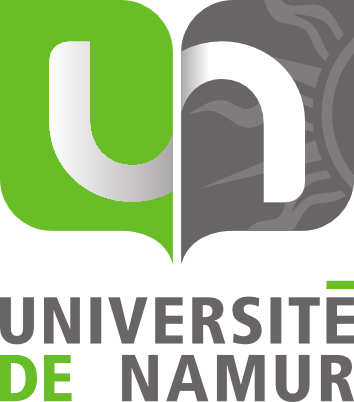Soutenance publique de thèse de doctorat en Sciences chimiques - Damien MAHAUT
Phosphatriptycenes: from quantum chemical investigations to applications in main group and frustrated Lewis pair chemistry
Date : 22/06/2023 16:30 - 22/06/2023 19:30
Lieu : CH01
Orateur(s) : Damien MAHAUT
Organisateur(s) : Guillaume BERIONNI
Jury
- Dr MICHAUX Catherine (département de chimie, UNamur), présidente
- Prof. BERIONNI Guillaume (département de chimie, UNamur), promoteur et secrétaire
- Prof. CHAMPAGNE Benoît (département de chimie, UNamur)
- Dr LIEGEOIS Vincent (département de chimie, UNamur)
- Prof. BAUDOIN Olivier (department of Chemistry, University of Basel)
- Prof. LUTS Greb (University of Heidelberg)
Abstract
Frustrated Lewis pairs (FLPs) consisting of sterically
hindered Lewis acids and bases constitute promising alternatives to established
transition metal catalysts. Expanding the scope of FLP and main group chemistry
requires the development of Lewis bases or acids with new reactivities. To this
end, constraining main group elements, such as phosphorus and boron, in a
“non-classical” scaffold is a promising but little explored strategy. Due to
their cage-shaped structure,
9-phosphatriptycene derivatives are weak Lewis bases with high potential in FLP
chemistry. Similarly, boranes such as 9-boratriptycene derivatives exhibit
enhanced Lewis acidity due to their non-planar character.
This thesis describes the multi-step
synthesis of 9-phosphatriptycene derivatives and their application in FLP
catalysis (hydrogenation of unactivated alkenes) and in main group chemistry
(potential fluorinating agents). In addition, a density functional theory
investigation was undertaken, focusing on their structure-property
relationships as well as on the Lewis acidity of
9-boratriptycene derivatives and their application in methane activation.
In essence, this work expanded our understanding of the structure-property relationships affecting the reactivity of main group compounds. This fundamental advancement demonstrated that structural changes can constitute a new strategy for reactivity fine-tuning and brought solutions to long-lasting challenges in metal-free catalysis and main group chemistry.
Link
Cliquez ici pour rejoindre la réunion
Télecharger :
vCal
